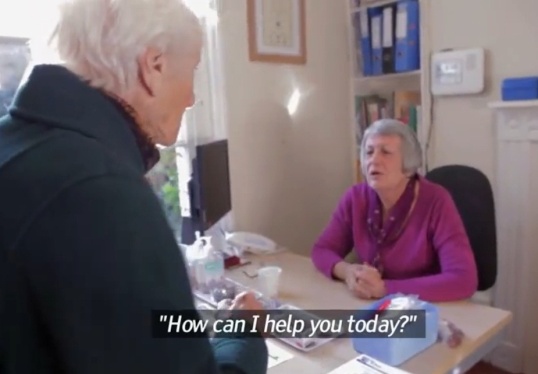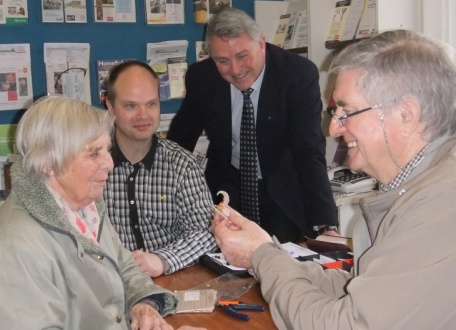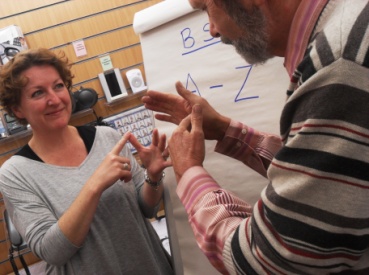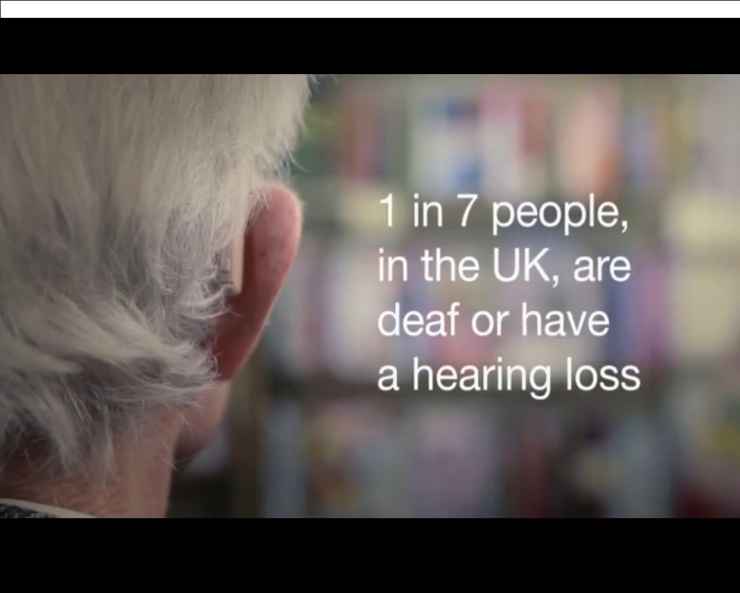Responding to the Many Needs of the People with Hearing Loss
There is a growing interest in the whole topic of hearing loss by members of the Rotary E-Club of London Centenary following a presentation in May 2012 by one of the Club members on how a bone anchored hearing aid helped him to lessen the serious hearing problems that resulted when he had a brain tumour removed from the side of his head. At our weekly meeting 20 September 2012, the Club had another speaker on the subject. This was John Clayton, the Chief Executive of Hi Kent, a highly successful charity operating in the county of Kent, which lies South East of London and includes the towns of Ashford, Canterbury, Chatham and Maidstone.
The “Hi” in the charity’s name stands for “hearing impaired”. Hi Kent was set up 26 years ago in 1986. Originally it had just 2 members of staff. It grew very slowly in the following years.
When John was appointed in 2004 he was told by the Chairman to raise the profile of the organisation and this he has done over the last 8 years. In 2004 it helped some 4,000 people. In 2012 it has 19 staff, over 200 volunteers and is now helping over 65,000 people per year. However, this is not enough to meet the true need.

In Kent alone there are 250,000 people who are deaf or have serious hearing loss. There is a great more to be done to help everyone in need. Across the UK 1 in 7 people are deaf or seriously hard of hearing.
Hi Kent has a contract with Kent County Council to assess the hearing needs of people aged over 65. People are referred to Hi Kent by doctors, social workers and staff of other agencies, whilst some people come directly to Hi Kent for help. A visit is made to the person’s home and their needs are assessed. After the assessment they may receive some equipment that assists them cope with their condition.
This may be a visual door bell that alerts them to a caller with a flashing light, a loop system in the living room, a TV listener or some other item of equipment. The TV listener ends the need to have the TV on loud and so restores harmony in a household and also between neighbours. Smoke alarms for the deaf work by sending an infrared signal to a small pad which goes under their pillow, and vibrates on receiving the signal, thus waking them in the event of a fire. There are also alarm clocks that work in the same way, using a vibrating pad. All the equipment is provided free of charge.

Hi Kent also runs a network of clinics across Kent to help people with hearing aids. There are now over 200 clinics in towns and villages across Kent. They are run by volunteers trained by Hi Kent. Many of the volunteers have themselves experienced hearing loss and so can well understand the problems people face. The volunteers adjust hearing aids, clean them, replace batteries, re-tube them and more.
Customers can just turn up at the clinic when the need arises. They do not have to make an appointment and no charge is made for this service.
The good work of the 200 volunteers has not gone unnoticed. In 2007 Hi Kent won the prestigious Queen’s Award for Voluntary Service. The award ceremony was held at Buckingham Palace. The organisation can now use the Royal logo on all its future literature. The award led to a great increase for the demand for its service but sadly there is no money attached to the award.

The UK is quite successful at teaching deaf people British sigh language. However, not everyone who is hard of hearing wants to learn this. Some people prefer to learn to lip read, something that takes about 2 years to achieve. When people lose their hearing, they become self-conscious and start to find excuses not to go out. As a result they soon become very isolated and are unable to take part in everyday activities. Lip reading helps them to re-engage with their community, family and friends, and is often a life-changing skill.
Teaching sign language
About 5 years ago the organiser of a group in a small Kentish village that was teaching lip reading asked Hi Kent for financial help to them keep going. This was provided and led to Hi Kent became involved with giving classes in lip reading. Slowly the number of lip reading classes began to increase.
In order to help with funding, an application was made to the National Lottery for funds, first for a grant from the “Awards for All” programme and later the larger “Reaching Communities” programme. Some 26 lip reading classes are now being funded from the Lottery and Kent has become the best provided county in England for lip reading classes. In neighbouring county of Essex there are just 2 classes and in East Sussex 3.
Hi Kent also teaches British sign language at levels 1 and 2. Their success rate was so high that the local education authority asked Hi Kent to take over the teaching of their level 2 classes.
Hi Kent also runs deafness awareness training courses for businesses to help their staff to be better equipped to meet the needs of deaf customers and clients. There is much businesses can do to improve the way they deal with people with hearing loss. Given the high number of deaf people there are, it is very much in the interest of businesses to understand the needs of their deaf customers. Sadly, with the current financial crisis, far fewer firms are willing to pay for deaf awareness training.
Hi Kent tries to keep up with all the technical changes that can assist deaf people. For example, some deaf people find texting using a mobile phone most useful and some like Skype with facilities for texting and the chance to use video to lip read what is being said.

The current situation is increasingly unfavourable to Hi Kent. Funding is much more difficult. Demand is growing but finance is getting harder to obtain. The present trend is for more contracting out of services in local authorities and the National Health Service. Hi Kent is threatened by the effects of new regulations. It may lose out to large national charities, or companies. The large organisations could push Hi Kent aside in their efforts to win contracts.
Hi Kent has had some success in the annual scheme whereby the large supermarket chain Sainsbury’s asks shoppers in each store to nominate a local charity to receive fundraising support for the coming year. Hi Kent was successful in 2011 in a vote at the second largest store in Kent. It received £4,000 and was also involved in the making of a film that was shown on Sky TV. As a result they now have a film about the work of Hi Kent lasting four and a half minutes.
The wide-ranging services offered by Hi Kent would serve as a good example that could be promoted by a Rotary Action Group on Hearing Loss were it to be set up. John Clayton has provided valuable encouragement for members of London Centenary to press for Rotary to do more in the field of helping those with hearing loss.
Editor's footnote:
To contact Hi Kent, click here to reach the organisation's website
The author of this article, E-club Council member Chris Edward, can be contacted at christ_edwards@hotmail.com

